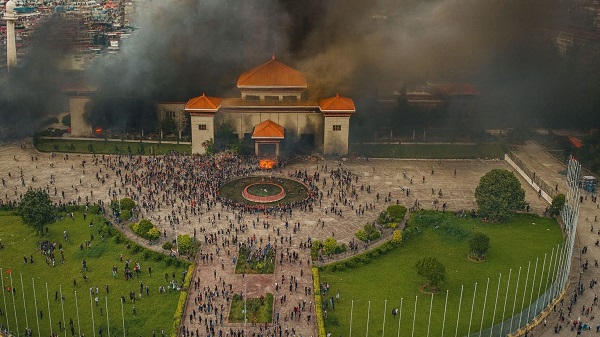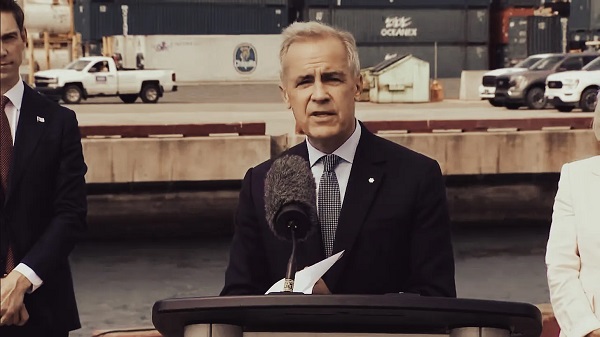International
Keir Starmer’s left-wing UK government is at war abroad and against its own people
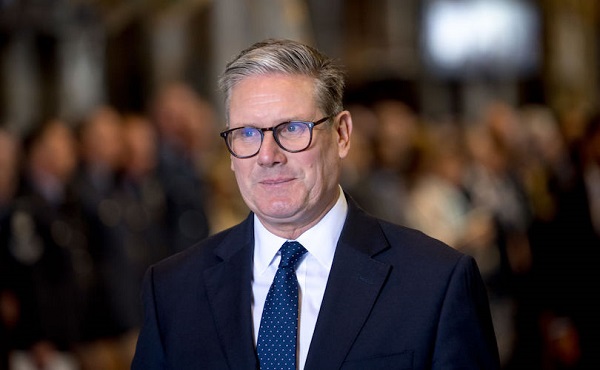
British Prime Minister Keir Starmer
From LifeSiteNews
By Frank Wright
With Britain’s economy facing disaster and its citizens under threat of imprisonment for tweet crimes, Prime Minister Keir Starmer’s government is stoking war abroad and charged with starting one at home – against its own people.
On the Fourth of July 2024 Keir Starmer won the U.K. general election with around one-fifth of the vote. This delivered him a huge majority in Parliament, and he vowed on the day that “politics can be a force for good. And that is how we will govern.”
Four months later, over two-and-a half million Britons have signed a petition to call another election. Though few believe this will result in an election, it is a strong sign of mounting dissatisfaction with the Labour government – and the numbers signing are rising by the thousands every minute.
Almost immediately on taking office the Starmer government plunged in popularity. Despite ending his first week in power with a reasonable approval rating in the polls, his support has suffered an “historic drop” in ratings, according to Politico’s report three weeks ago.
“Keir Starmer has suffered the biggest post-election fall in approval ratings of any British prime minister in the modern era,” the report said. He is “languishing on an approval rating of -38,” which is “a precipitous 49-point drop” from early July.
A disastrous budget and a declaration of “class war” on British farmers has followed this survey, with the latest indication of Starmer’s deep unpopularity seeing millions call for him to go.
One major reason for the call for an election is the Starmer government’s response to the knife murder of three girls aged six, seven and, nine by suspect Axel Rudakubana, initially described as a “boy … from Cardiff” on July 29, 2024.

Court sketch of “Cardiff teen” Axel Rudakubana. Source: X
READ: UK’s new Prime Minister Keir Starmer moves toward digital tyranny in response to civil unrest
Some British social media users who expressed outrage at the killings faced swift prosecution and some still face imprisonment. Starmer was accused by Elon Musk of being “Two-Tier Keir” – applying the law unevenly to imprison critics, whilst freeing actual violent criminals to make space for “keyboard rioters.”
“Is this Britain or the Soviet Union?” – asked Musk as news of the arrests for speech crimes broke.
British judges have handed down harsh sentences – up to 38 months – for “hate speech,” including posts on sites such as X (formerly Twitter).
One man, Yorkshire grandfather Peter Lynch, subsequently died in prison. He was described as “the victim of a vengeful, out-of-touch Prime Minister” in the Daily Telegraph. Starmer had vowed to “crack down on far-right thugs” such as Lynch, who was jailed for shouting that police were “protecting people who are killing our kids and raping them.”
A 2015 report said up to “one million British children” may have been sexually exploited by immigrant gangs. The judge who jailed Lynch had also set a convicted child sex offender free.
The convictions were pursued under an official narrative of countering hate speech, as many of those prosecuted alleged a terrorist motive to the killings, linking this to the fact that the suspect was the child of Rwandan immigrants. These claims were routinely dismissed as dangerous conspiracy theories – and hate speech.
Starmer was formerly a lawyer who has worked in the past to secure rights and benefits for illegal immigrants, and once promoted a 2015 petition to “accept more asylum seekers and increase support” for them.
Evidence emerged at the initial hearing before his trial that the suspected killer had been found in possession of an “Al Qaeda training manual” and was attempting to manufacture the nerve agent ricin. He was charged under the Terrorism Act.
In addition to terrorism charges, and three counts of murder, the BBC reported “he is also charged with ten counts of attempted murder and possession of a knife.” Eight children were wounded, along with two adults, during the attacks.
READ: UK’s draconian ‘online safety’ laws are turning traditional values into criminal ‘hate speech’
As this news broke, reports emerged showing Starmer had known that the suspect would face terror charges “for weeks,” whilst he and his government condemned “misinformation” whenever terrorism was mentioned in connection with the attacks.
As The Sun reported, both former Prime Minister Liz Truss and a former adviser to Boris Johnson, Dominic Cummings, said Starmer would have known this “immediately” after the attacks.
Many judges who have imprisoned British social media users for “tweet crimes” have been found to have released child sex offenders without jail time, fueling further outrage. A report from the Telegraph confirmed the trend of releasing “pedophiles” without custodial sentences.
Musk again commented on one shocking case.
With the investigation of a British journalist, Allison Pearson, over a “non-crime hate incident,” the charge of “Keir Stasi” was reprised, with Elon Musk once again chiming in.
Pearson was visited at home by police over an old tweet, in a case which has since been dropped. Yet Elon Musk’s friction with the Starmer government does not end here – nor with him.
READ: Keir Stasi? UK government wants to prosecute ‘non-crime hate speech’
Breaking the ‘special relationship’?
The Starmer government is also mired in a serious scandal concerning the incoming Trump administration. As the Washington Post reported, Starmer’s Labour Party “helped organize 100 members to volunteer for the Kamala Harris campaign, with a focus on the swing states.”
The Trump campaign responded with a legal complaint with the U.S. Federal Election Commission, charging Starmer’s Labour, together with the Harris campaign, with “making and accepting illegal foreign national contributions.”
Though the scandal was hand-waved away by Starmer, his cabinet ministers have a long history of making outrageous remarks about President Trump. U.K. Foreign Secretary David Lammy, for example, has alleged Trump is a member of the Ku Klux Klan and called Trump a “neo-Nazi sociopath.”
That the Trump campaign has called Starmer’s party “far-left” is not the half of it. The U.K. government has long pressed for escalation in Ukraine – a war which Trump has vowed to end.
With the war’s end would come a harsh reckoning of costs – including to energy bills, in human lives, and of course in the once notorious corruption of Ukraine itself. The Pandora Papers revealed the “hidden fortunes of the world’s elite and crooks” and the report, issued in November 2021, even detailed the shady financial dealings of Zelensky himself.
With isolation looming in Europe, Starmer is looking very lonely. His chief continental ally, German Chancellor Olaf Scholz, has just seen his government dissolve. Right-wing populism is growing across Europe, with France, Sweden, Austria, and the Netherlands looking to politicians far friendlier to Hungary’s Viktor Orbán than to pro-open borders and permanent war progressives like Starmer.
British intelligence operations under Starmer have also included attempts to “kill Musk’s Twitter,” with Kit Klarenberg reporting on November 3 how “British Intel Again Targets Donald Trump.”
Starmer’s troubles at home and abroad are serious and seemingly insoluble. His Chancellor of the Exchequer, Rachel Reeves, has recently been exposed as a liar. She had claimed to have been an economist, when in fact she had been a sort of clerk – and had also been described as “useless.”
With Britain’s economy facing disaster, its citizens under threat of imprisonment for tweet crimes, and with the Labour Party seeing farmer protests in London against its tax and land grab, Starmer’s government is stoking war abroad and charged with starting one at home – against its own people.
His government is an advertisement for a world order which Americans – and Europeans – are voting against in huge numbers. So, what happened in the U.K. in July?
The real winner of the last election in the U.K. wasn’t the Labour Party. Half of all adults did not vote at all, and turnout was the lowest since universal suffrage was introduced, as the IPPR reported.
“If non-voters were a party, they would have been the largest party by some distance,” it found.
Britain does not just face a crisis of confidence in its current government when the largest vote share is won by “none of the above.” It is hard to see how a petition can fix this, but given the level of disengagement with the electoral machine, it is notable that two-and-a-half million people can be bothered to sign it at all.
If you can motivate millions of people who do not vote into taking an interest in politics, perhaps – as Keir Starmer did – you can call yourself a “force for good.”
espionage
Inside Xi’s Fifth Column: How Beijing Uses Gangsters to Wage Political Warfare in Taiwan — and the West

A new Jamestown Foundation report details how China’s Ministry of State Security and allied triads have been used to subvert Taiwan’s democracy as part of Beijing’s united front.
Editor’s Note
The Bureau has previously reported on how Chinese state-linked crime networks have exploited Canada’s real estate market, casinos, and diaspora associations, often under the cover of united front work. One of these groups, the Chinese Freemasons, has been linked to meetings with Canadian politicians, as reported by The Globe and Mail ahead of the 2025 federal election. The Globe noted that the Toronto chapter explicitly advocates for the “peaceful reunification of Taiwan.” The Jamestown Foundation’s new findings on groups active in Taiwan — including the Chinese Freemasons, also known as the Hongmen, the related Bamboo Union triad, and the China Unification Promotion Party (CUPP) — show that Taiwan is the epicenter of a strategy also visible, though less intensively, across democracies including the United States. The parallels — from Vancouver to Sydney to New York to Taipei — should alert governments that the “fifth column” problem is international, and it is growing.
TAIPEI — At a banquet in Shenzhen more than two decades ago, Chang An-lo — the Bamboo Union boss known as “Big Brother Chang” or “White Wolf” — raised a glass to one of the Communist Party’s princelings. His guest, Hu Shiying, was the son of Mao Zedong’s propaganda chief. “Big Brother Chang,” Hu reportedly toasted him, an episode highlighted in a new report from the Jamestown Foundation.
Hu would later be described by Australian journalist John Garnaut as an “old associate of Xi Jinping.” That link — through Hu and other princelings Chang claimed to have met — placed the Bamboo Union leader within the orbit of Party elites. Garnaut also reported that the Ministry of State Security (MSS) had used the Bamboo Union to channel lucrative opportunities to Taiwanese politicians. According to Jamestown researcher Martin Purbrick, a former Royal Hong Kong Police intelligence officer, such episodes show how the CCP has systematically co-opted Taiwanese organized crime as part of its united front strategy.
“The long history of links between the CCP and organized crime groups in Taiwan,” Purbrick writes, “shows that United Front strategy has embedded itself deeply into Taiwan’s political life.”
Chang’s global influence is not a relic of the past. The Bureau reported, drawing on leaked 1990s Canadian immigration records, that intelligence indicated Chang’s triad had effectively “purchased” the state of Belize, on Mexico’s southern border, for use in smuggling illegal immigrants into the United States. But Chang is more relevant than ever as fears of Beijing invading Taiwan grow. In August 2025, seated in his Taipei office before a PRC flag, he appeared on a YouTube program to deny he led any “fifth column.” Instead, he insisted Taiwan must “embrace” Beijing and cast himself as a “bridge for cross-strait peace.”
His denial came just months after Taiwan’s Ministry of Justice accused CUPP of acting as a political front for organized crime and foreign interference. Police suspected more than 130 members of crimes ranging from homicide to drug trafficking. Prosecutors charged CUPP operatives with taking $2.3 million from the CCP to fund propaganda. In January, the Ministry of the Interior moved to dissolve the party outright, submitting the case to Taiwan’s Constitutional Court. By March, a Kaohsiung court sentenced CUPP deputy secretary-general Wen Lung and two retired military officers for recruiting Taiwanese personnel on behalf of the PRC. According to court filings, Wen had been introduced by Chang to the Zhuhai Taiwan Affairs Office, which in turn connected him to a PLA liaison officer.
President Lai Ching-te, in a March national security address, warned that Beijing was attempting to “divide, destroy, and subvert us from within.” Intelligence assessments in Taipei describe the Bamboo Union and CUPP as part of a potential “fifth column,” prepared to foment unrest and manipulate opinion in the event of an invasion.
The historical record shows why Taipei is so concerned. Chang’s name has shadowed some of Taiwan’s darkest chapters. In the 1980s, he was suspected of involvement in the assassination of dissident writer Henry Liu in California. He was later convicted of heroin smuggling in the United States, serving ten years in prison. After returning to Taiwan, he fled again in 1996 when authorities sought his arrest, spending 17 years in Shenzhen. During those years, he cultivated ties with influential Party families. At the Shenzhen banquet, Washington Post journalist John Pomfret wrote, Hu Shiying introduced him as “Big Brother Chang,” signaling acceptance in elite circles. Garnaut, writing over a decade later, noted that Hu was an “old associate of Xi Jinping” and that Chang had moved comfortably among other princelings, including sons of a former CCP general secretary and a top revolutionary general.
These connections translated into political capital. When Chang returned to Taiwan in 2013, he launched the China Unification Promotion Party — a pro-Beijing group openly advocating “one country, two systems.” He declared his mission was to “cultivate red voters.” CUPP cadres and Bamboo Union affiliates became visible in street politics, clashing with independence activists and disrupting rallies. During U.S. Speaker Nancy Pelosi’s 2021 visit, they staged counter-protests echoing Beijing’s line.
The ideological warfare runs even deeper. A Phoenix TV segment from 2011 recalled how a Bamboo Union elder declared in 1981 that he “would rather the CCP rule Taiwan than have Taiwan taken away by Taiwan independents.” Chang himself has echoed this sentiment for decades. In 2005, he launched a Guangzhou-based group called the Defending China Alliance, later rebranded in Taipei as CUPP. His activism has spanned disruptive protests, nationalist rallies, and propaganda campaigns amplified through China-linked media channels.
Purbrick situates these developments within a wider united front playbook. Taiwanese triads and Chinese Freemason associations are courted as grassroots mobilizers, intermediaries, and psychological enforcers. A recent report from the Washington Post has also linked the Chinese Freemasons to the powerful 14K Triad, a global network deeply implicated in Chinese underground banking networks accused of laundering fentanyl proceeds for Mexican cartels through the United States. The triad–Hongmen nexus complements other CCP efforts: online influence campaigns, cultural outreach, and intelligence recruitment inside Taiwan’s military.
The implications extend beyond Taiwan. In Canada, Australia, the United States, Southeast Asia, and beyond, intelligence agencies have documented how PRC-linked triads launder drug profits, fund political donations, and intimidate diaspora critics. These groups benefit from tacit state protection: their criminality overlooked so long as they advance Beijing’s strategic objectives. It is hybrid warfare by stealth — not soldiers storming beaches, but criminal syndicates reshaping politics from within.
For Taiwan, the Bamboo Union and CUPP remain immediate threats. For other democracies, they serve as case studies of how united front tactics adapt across borders. President Lai’s warning that Beijing seeks to “create the illusion that China is governing Taiwan” resonates internationally.
Before leaving journalism to establish an advisory firm, John Garnaut himself became entangled in the political fallout of his reporting. He was sued by a Chinese-Australian real estate developer from Shenzhen, who had funneled large donations to Australian political parties. The developer, later publicly implicated in the case by an Australian lawmaker under parliamentary privilege, successfully sued Garnaut for defamation in 2019. Subsequent disclosures confirmed the tycoon’s implication in an FBI indictment involving United Nations influence schemes and notorious Chinese operative Patrick Ho, later linked to a Chinese oil conglomerate accused of targeting the Biden family in influence operations. Together, these episodes highlight the global reach of united front networks.
International
Brazil sentences former President Bolsonaro to 27 years behind bars
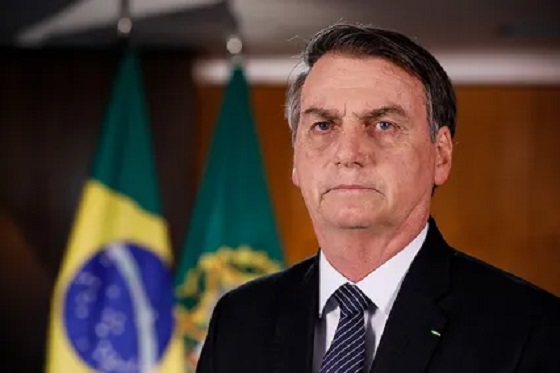
Quick Hit:
In a stunning display of political persecution, Brazil’s Supreme Federal Tribunal sentenced conservative former President Jair Bolsonaro to 27 years in prison on trumped-up charges of “crimes against democracy.” The ruling, driven by leftist judges loyal to radical President Luiz Inácio Lula da Silva, effectively ends Bolsonaro’s political career and underscores the growing use of weaponized courts to silence conservative leaders.
Key Details:
- Bolsonaro was sentenced to 27 years and 3 months in prison on charges critics say were fabricated to eliminate him from politics.
- U.S. Secretary of State Marco Rubio condemned the conviction as a “witch hunt,” promising America will respond.
- President Donald Trump has already imposed heavy tariffs on Brazil and sanctioned the lead judge, Alexandre de Moraes, for human rights abuses.
Diving Deeper:
The conviction of Jair Bolsonaro marks an unprecedented step in Brazil’s descent into judicial tyranny. A panel of just five STF justices, led by notorious censorship crusader Alexandre de Moraes, claimed Bolsonaro plotted a coup to overturn the 2022 election. Only one justice, Luiz Fux, dissented, while the others rubber-stamped Lula’s narrative of a “digital militia” undermining democracy.
In reality, Bolsonaro’s true crime was daring to challenge Brazil’s rigged electoral system and standing in the way of Lula’s return to power. The conviction is less about defending democracy and more about crushing political opposition. By sentencing Bolsonaro to nearly three decades behind bars and slapping him with a permanent ban from public office, Brazil’s courts have ensured that the conservative movement’s most powerful leader is silenced.
Internationally, outrage is building. Secretary of State Marco Rubio condemned the ruling as an act of persecution by sanctioned human rights abuser de Moraes, warning the U.S. “will respond accordingly.” Bolsonaro’s lawyers are preparing appeals to international courts, arguing that due process was shredded in a show trial orchestrated by Lula’s allies.
The Trump administration has already taken decisive action, slapping a 50 percent tariff on Brazilian goods and targeting de Moraes with Global Magnitsky sanctions for his authoritarian crackdown on free speech. Bolsonaro’s conviction is certain to deepen tensions with Washington, as conservatives see the case as a test of whether global elites can jail and silence opposition figures without consequence.
For Bolsonaro’s supporters, the ruling is proof that Brazil is sliding into dictatorship under the banner of “defending democracy.” What Lula and his allies call justice looks to many more like the criminalization of conservative thought — a warning of what happens when the Left is allowed to use courts as political weapons.
-
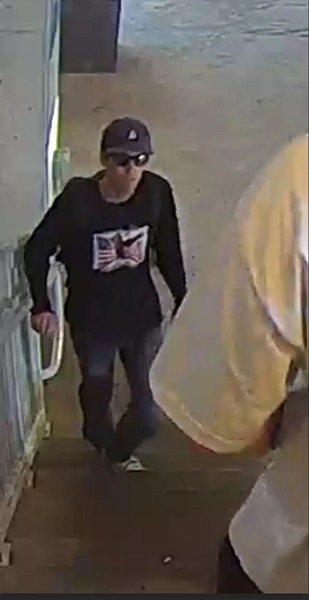
 International1 day ago
International1 day agoBreaking: ‘Catch This Fascist’: Radicalized Utah Suspect Arrested in Charlie Kirk Assassination, Officials Say
-

 Crime2 days ago
Crime2 days agoFormer NYPD Inspector Breaks Down How Charlie Kirk’s Shooter Will Be Caught
-
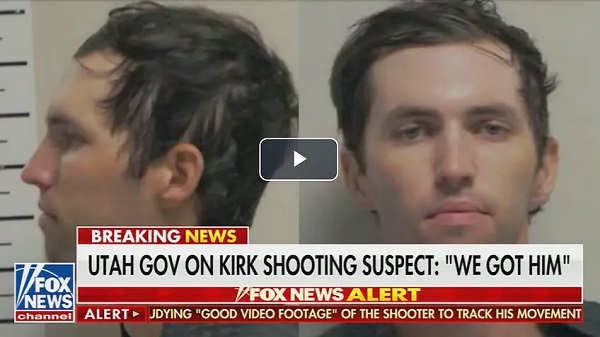
 International1 day ago
International1 day agoCharlie Kirk Shooting Suspect Revealed: Here’s What His Ammunition Said
-
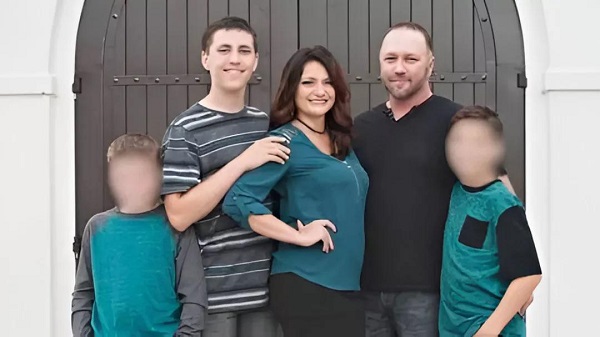
 Crime15 hours ago
Crime15 hours agoFormer NYPD Inspector Shares What Family Of Alleged Charlie Kirk Assassin Feared Before Turning Him In
-
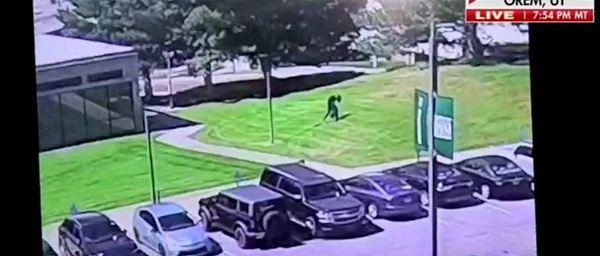
 Crime2 days ago
Crime2 days agoSurveillance video shows Charlie Kirk’s killer slipping away moments after shooting
-

 COVID-192 days ago
COVID-192 days agoThe Persecution of Canada’s “Other” Freedom Convoy Truckers
-
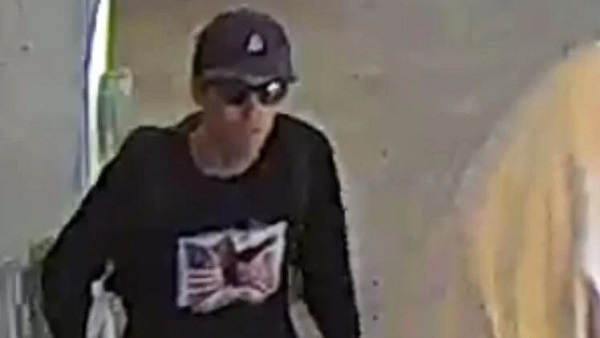
 Crime1 day ago
Crime1 day agoArrest made in Charlie Kirk assassination
-

 Crime1 day ago
Crime1 day ago‘Radicalized’ shooter dead, two injured in wake of school shooting



